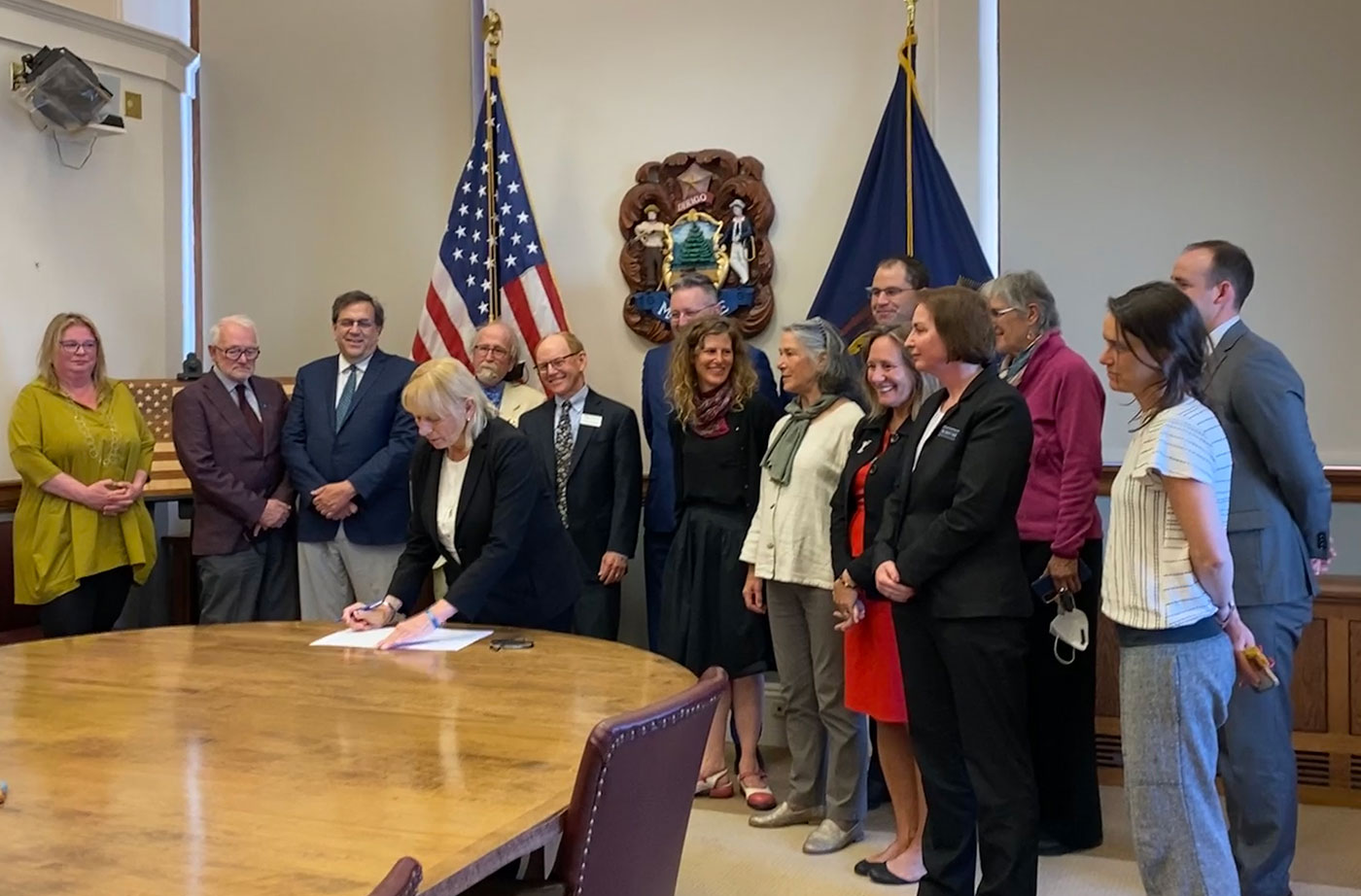
NRCM news release
May 9, 2022 (Augusta, ME) – Electric utilities in Maine will for the first time be required to create a comprehensive plan for supporting the state’s ambitious climate and clean energy goals under a landmark bill signed into law earlier this month.
Conservation groups that worked closely with lawmakers and the Mills Administration to strengthen the bill are calling it the most significant climate action accomplishment of this legislative session.
LD 1959 will require utilities to undergo a transparent “integrated grid planning” process for developing a reliable electric grid that supports the transition to clean energy at the lowest possible cost to electricity customers. Utilities will not only have to forecast the increased demand for energy as heating, cooling, and transportation are electrified, they must also encourage innovative strategies to balance demand with clean supply through increased energy efficiency, flexibility, and energy storage.
“You wouldn’t build a house or a road without a plan, and we shouldn’t undertake a once-a-century overhaul of our electric grid without one, either,” said Jack Shapiro, Climate and Clean Energy Director at the Natural Resources Council of Maine (NRCM). “Linking grid planning to Maine’s bipartisan climate and clean energy goals is a major step forward for every Mainer who cares about avoiding the worst impacts of climate change and creating a healthier, more prosperous state for us all to live in.”
“Instead of making incremental upgrades in the grid to accommodate each new distributed solar project, for example, integrated distribution planning will help us be strategic about the long-term investments we need to transform our power sector,” said NRCM’s senior climate advocate Rebecca Schultz. “Requiring our utilities to conduct integrated grid planning is about creating a climate-resilient future that works for all Mainers. A future in which a modern electric grid and cutting-edge technologies power our homes, businesses, and transportation with clean, reliable, and affordable energy produced here in Maine.”
Under the new law, grid planning conducted by utilities must be tied to the Maine Won’t Wait Climate Action Plan and the goals to reduce greenhouse gas emissions 45% by 2030 and 80% by 2050 that were passed by bipartisan majorities in the Legislature. The new inclusive grid planning process will be conducted with extensive opportunity for public input and will incorporate equity and environmental justice considerations. Utilities currently conduct grid planning behind closed doors with little to no opportunity for public input from experts and others.
The utility accountability provisions included in LD 1959 respond to long-standing reliability and performance issues with Maine’s largest utilities that have been rated as among the nation’s worst performing. Clear metrics will be used to evaluate utility performance, with mandatory financial penalties for poor performance and the possibility of being replaced for consistent failures.
Additional background:
- Read about what’s next for Maine’s new grid planning law.
- Read more about why a strong grid planning and utility accountability bill is important for climate action in Maine.
"electric" - Google News
May 10, 2022 at 02:24AM
https://ift.tt/vMnXgyq
New Law Will Tie Electric Grid Planning to Maine's Climate Goals - Natural Resources Council of Maine
"electric" - Google News
https://ift.tt/EyOhfR6
https://ift.tt/LTnhKP1
Bagikan Berita Ini














0 Response to "New Law Will Tie Electric Grid Planning to Maine's Climate Goals - Natural Resources Council of Maine"
Post a Comment